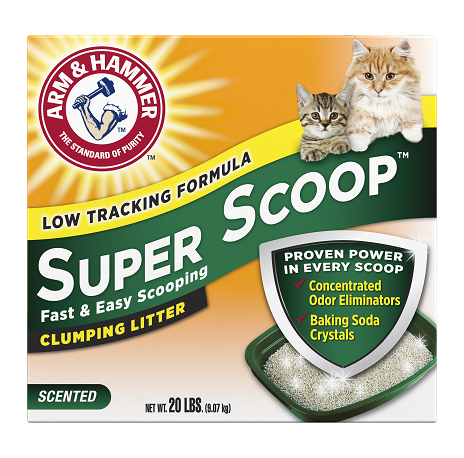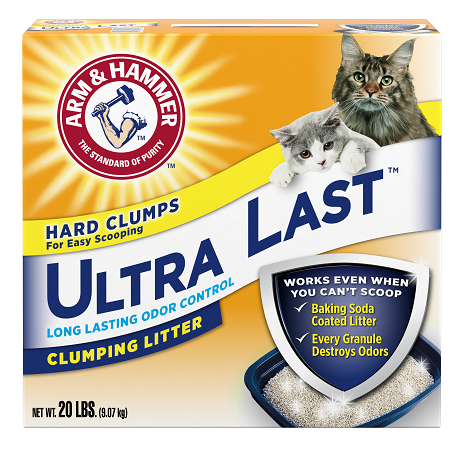Most cats poop about once a day, though it’s also normal for a cat to poop every 12-36 hours. Kittens may poop up to three times per day, while older cats are usually less often. If your cat poops more than 3 times per day or less than once per day, consult your veterinarian.
It typically takes 10-24 hours for food your cat eats to move through the digestive tract.
What Does Normal or Healthy Cat Poop Look Like?
Every cat’s poop is a little different, but in general healthy cat poop is deep brown in color, formed and moist, neither very hard or soft, has an odor but is not foul, and has no mucous or blood. The consistency should be similar to modeling clay – but we don’t suggest making a sculpture or playing with it.
What Does Unhealthy or Abnormal Cat Poop Look Like?
If you’re wondering whether you should be concerned about your cat’s poop, remember this: abnormal cat poop can be runny or stringy, have excess cat hair, be black or tarry, be frothy or mucous-like, smell incredibly foul, have visible blood, or be small, hard and dry.
What factors affect how often cats poop?
As with humans, the amount cats poop can vary, depending on lifestyle and what they eat. Here are some factors that can affect how often your cat poops to keep in mind when figuring out what is normal output for your kitty.
- Age of the cat. Older cats may poop less often than younger ones or kittens. Senior cats can have more trouble getting to the litter box or have other health conditions that affect how often and how much they poop as well.
- Activity level. More active cats tend to be more regular and poop more often. If your cat is more of a champion napper and lounger, they may poop less frequently. Increasing your cat’s daily exercise through play can help move things along if kitty is less-than-regular.
- Water intake. If your cat isn’t drinking enough, they have a greater chance of getting constipated. If your cat only eats dry kibble, be sure they have ample opportunities to drink water.
- Quality of food. Food that is less nutritious can lead to more frequent or larger poops as more bulk is passed through and less is absorbed.
- Cats who eat too much may poop more often or with greater volume. Try regulating when your cat gets fed and the amount you provide, vs a self-feeder.
- Changing food. If you change your cat’s food, your cat’s poop may also change. There can be a fairly normal adjustment or the new food may not agree with them. Whenever changing your cat’s food introduce the new food slowly, mixed with the previous food, over a period of at least a week to minimize digestive difficulties.
- Food allergies. Cats get food allergies, too, so diarrhea is often a bad sign. If you think your cat may have a food allergy, check in with your vet.

When Do Kittens Start Pooping?
Most kittens poop and pee on their own by 3-4 weeks of age. In fact, kittens can learn to use the litter box at 3-4 weeks old, too! Once the instinct kicks in, it’s time to begin litter training. Orphaned kittens younger than 3 weeks old need to be stimulated with a warm wet cloth to cause them to poop.
Is Your Cat Constipated? What are the symptoms?
Cats are very good at masking pain and it can be hard to tell when some cats are constipated or otherwise not feeling well. Other cats are quite vocal and the change in behavior is more noticeable. Here’s what to look for to help you know whether your kitty is experiencing constipation:
- Small, hard, dry poops
- Cat heading to the litter box more often, but nothing to show for it.
- Straining or even yowling while trying to poop
- Lethargy or hiding (cats do this when they don’t feel well).
- Hard abdomen
- Loss of appetite
- Vomiting
If your cat hasn’t pooped in more than two days and is showing these signs, a vet visit is in order. Your cat may have an impaction or obstruction. Some cats develop a disease known as megacolon, when the colon loses its typical motility and becomes progressively larger. Your vet can help you learn if your cat is constipated, obstructed or has one of these other conditions – and help treat it.
Do Cats Revenge Poop?
We know it may seem like it sometimes, but no, cats do not poop outside the litter box or in your shoes or bed out of revenge or spite. A cat that is pooping or peeing outside the litter box has something wrong and is trying to get your attention (it worked, didn’t it?). A vet visit is in order.
Don’t punish your cat if they poop outside the litter box. Take them to the vet to find out if the cause is medical or behavioral and work with your kitty to restore proper pooping habits.
A Clean Litter Box is a Place Cats Like to Poop
Get in the habit of scooping your cat’s litter box every day or every other day so you can monitor how much your cat is peeing and pooping and notice any changes quickly. Some kitty parents scoop immediately after their cat uses the box to help it stay clean and minimize odor.
If you’re a scoop-after-each-poop-or-pee-parent, you’ll want a cat litter that absorbs wetness quickly and coats feces to create hard clumps that are easier to remove.
Try one of these ARM & HAMMER™ cat litters to create a pleasant pooping experience for your kitty:



